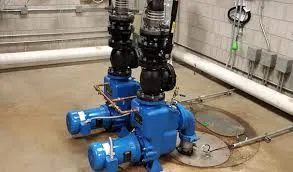English
- Afrikaans
- Albanian
- Amharic
- Arabic
- Armenian
- Azerbaijani
- Basque
- Belarusian
- Bengali
- Bosnian
- Bulgarian
- Catalan
- Cebuano
- Corsican
- Croatian
- Czech
- Danish
- Dutch
- English
- Esperanto
- Estonian
- Finnish
- French
- Frisian
- Galician
- Georgian
- German
- Greek
- Gujarati
- Haitian Creole
- hausa
- hawaiian
- Hebrew
- Hindi
- Miao
- Hungarian
- Icelandic
- igbo
- Indonesian
- irish
- Italian
- Japanese
- Javanese
- Kannada
- kazakh
- Khmer
- Rwandese
- Korean
- Kurdish
- Kyrgyz
- Lao
- Latin
- Latvian
- Lithuanian
- Luxembourgish
- Macedonian
- Malgashi
- Malay
- Malayalam
- Maltese
- Maori
- Marathi
- Mongolian
- Myanmar
- Nepali
- Norwegian
- Norwegian
- Occitan
- Pashto
- Persian
- Polish
- Portuguese
- Punjabi
- Romanian
- Russian
- Samoan
- Scottish Gaelic
- Serbian
- Sesotho
- Shona
- Sindhi
- Sinhala
- Slovak
- Slovenian
- Somali
- Spanish
- Sundanese
- Swahili
- Swedish
- Tagalog
- Tajik
- Tamil
- Tatar
- Telugu
- Thai
- Turkish
- Turkmen
- Ukrainian
- Urdu
- Uighur
- Uzbek
- Vietnamese
- Welsh
- Bantu
- Yiddish
- Yoruba
- Zulu
Telephone: +86 13120555503
Email: frank@cypump.com
Dec . 26, 2024 17:52 Back to list
water pump for potable water
The Importance of Water Pumps for Potable Water
Access to potable water is a fundamental human right and a critical resource for life. Ensuring clean water availability in communities, especially in rural and underdeveloped areas, involves various technologies, and one of the most vital of these is the water pump. Water pumps play a crucial role in extracting, transporting, and distributing potable water, serving households, businesses, and institutions. This article explores the importance of water pumps for potable water, their types, applications, and the innovations driving their efficiency.
Understanding Water Pumps
Water pumps are mechanical devices designed to move water from one location to another. They come in various types, including submersible pumps, centrifugal pumps, and hand-operated pumps. Each type serves different needs and environments, such as extracting groundwater from wells or moving water through treatment facilities. The choice of pump depends on several factors, including water source, volume requirements, and intended application.
Types of Water Pumps
1. Submersible Pumps As the name suggests, these pumps operate underwater, typically within a well. They are highly efficient in lifting water from deep underground sources, making them ideal for providing potable water to households in rural areas. Submersible pumps are designed to withstand the conditions of their environment, making them reliable for long-term use.
2. Centrifugal Pumps Commonly used in water treatment plants and for irrigation purposes, centrifugal pumps use rotational energy to move water. They are effective for higher flow rates and can be used to distribute treated potable water throughout a community. These pumps are highly adaptable and can be customized for specific use cases.
3. Hand-Operated Pumps Although less common today, hand-operated or manual pumps are still crucial in many developing regions. They provide a cost-effective solution for accessing groundwater without reliance on electricity or complex systems. Such pumps empower communities, enabling them to draw water for domestic use.
Applications of Water Pumps
Water pumps are essential in numerous applications that directly impact human health and well-being
. Here are some key areas where they are appliedwater pump for potable water

- Household Water Supply In many rural settings, families rely on water pumps to access clean water for drinking, cooking, and hygiene. By tapping into underground aquifers, these pumps provide a reliable source of potable water.
- Agricultural Irrigation In agricultural regions, water pumps facilitate irrigation, ensuring crops receive adequate hydration. This is essential not only for food security but also for maintaining the livelihoods of farmers.
- Water Treatment Systems In urban areas, water pumps are integral to water treatment facilities, where they help transport raw water through various purification processes. This ensures that the potable water supplied to homes is safe and meets health regulations.
- Disaster Relief Water pumps are critical during natural disasters, such as floods or droughts. They provide emergency access to clean water, helping affected communities recover and maintain hygiene.
Innovations in Water Pump Technology
Advancements in technology continue to enhance the efficiency and accessibility of water pumps. Solar-powered pumps have gained popularity, especially in regions with limited electricity. These sustainable pumps harness solar energy to operate, allowing communities to generate their own clean water supply sustainably.
Additionally, smart technology is increasingly being integrated into water pump systems. Remote monitoring and control features enable better management of water resources, allowing for timely maintenance and reducing the risk of system failures.
Conclusion
Water pumps are an indispensable component of the infrastructure necessary for providing potable water to communities around the globe. They ensure the accessibility and reliability of clean water, which is essential for health, agriculture, and economic development. As technology continues to advance, the efficiency and sustainability of water pumps will improve, further enhancing their role in promoting global water security. By investing in innovative water pump solutions, nations can tackle challenges related to water scarcity, ensuring that every individual has access to this vital resource. In doing so, we take a significant step towards a healthier, more sustainable future.
-
ISG Series Pipeline Pump - Chi Yuan Pumps | High Efficiency, Durable Design
NewsAug.01,2025
-
Advanced Flue Gas Desulfurization Pump with GPT-4 Turbo | Durable & Efficient
NewsJul.31,2025
-
ISG Series Vertical Pipeline Pump - Chi Yuan Pumps | Advanced Hydraulic Design&Durable Construction
NewsJul.31,2025
-
ISG Series Vertical Pipeline Pump - Chi Yuan Pumps | Energy Efficient & Low Noise
NewsJul.31,2025
-
pipeline pump - Chi Yuan Pumps Co., LTD.|High Efficiency&Low Noise
NewsJul.31,2025
-
ISG Series Vertical Pipeline Pump - Chi Yuan Pumps Co., LTD.|High Efficiency, Energy Saving, Low Noise
NewsJul.30,2025










